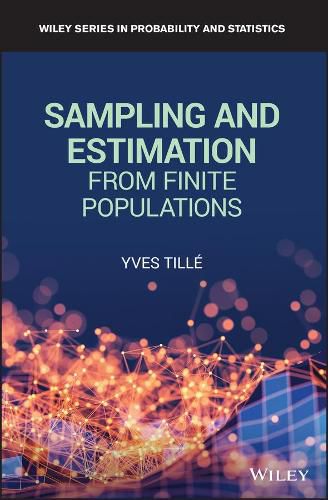Readings Newsletter
Become a Readings Member to make your shopping experience even easier.
Sign in or sign up for free!
You’re not far away from qualifying for FREE standard shipping within Australia
You’ve qualified for FREE standard shipping within Australia
The cart is loading…






A much-needed reference on survey sampling and its applications that presents the latest advances in the field
Seeking to show that sampling theory is a living discipline with a very broad scope, this book examines the modern development of the theory of survey sampling and the foundations of survey sampling. It offers readers a critical approach to the subject and discusses putting theory into practice. It also explores the treatment of non-sampling errors featuring a range of topics from the problems of coverage to the treatment of non-response. In addition, the book includes real examples, applications, and a large set of exercises with solutions.
Sampling and Estimation from Finite Populations begins with a look at the history of survey sampling. It then offers chapters on: population, sample, and estimation; simple and systematic designs; stratification; sampling with unequal probabilities; balanced sampling; cluster and two-stage sampling; and other topics on sampling, such as spatial sampling, coordination in repeated surveys, and multiple survey frames. The book also includes sections on: post-stratification and calibration on marginal totals; calibration estimation; estimation of complex parameters; variance estimation by linearization; and much more.
Provides an up-to-date review of the theory of sampling Discusses the foundation of inference in survey sampling, in particular, the model-based and design-based frameworks Reviews the problems of application of the theory into practice Also deals with the treatment of non sampling errors
Sampling and Estimation from Finite Populations is an excellent book for methodologists and researchers in survey agencies and advanced undergraduate and graduate students in social science, statistics, and survey courses.
$9.00 standard shipping within Australia
FREE standard shipping within Australia for orders over $100.00
Express & International shipping calculated at checkout
Stock availability can be subject to change without notice. We recommend calling the shop or contacting our online team to check availability of low stock items. Please see our Shopping Online page for more details.
A much-needed reference on survey sampling and its applications that presents the latest advances in the field
Seeking to show that sampling theory is a living discipline with a very broad scope, this book examines the modern development of the theory of survey sampling and the foundations of survey sampling. It offers readers a critical approach to the subject and discusses putting theory into practice. It also explores the treatment of non-sampling errors featuring a range of topics from the problems of coverage to the treatment of non-response. In addition, the book includes real examples, applications, and a large set of exercises with solutions.
Sampling and Estimation from Finite Populations begins with a look at the history of survey sampling. It then offers chapters on: population, sample, and estimation; simple and systematic designs; stratification; sampling with unequal probabilities; balanced sampling; cluster and two-stage sampling; and other topics on sampling, such as spatial sampling, coordination in repeated surveys, and multiple survey frames. The book also includes sections on: post-stratification and calibration on marginal totals; calibration estimation; estimation of complex parameters; variance estimation by linearization; and much more.
Provides an up-to-date review of the theory of sampling Discusses the foundation of inference in survey sampling, in particular, the model-based and design-based frameworks Reviews the problems of application of the theory into practice Also deals with the treatment of non sampling errors
Sampling and Estimation from Finite Populations is an excellent book for methodologists and researchers in survey agencies and advanced undergraduate and graduate students in social science, statistics, and survey courses.